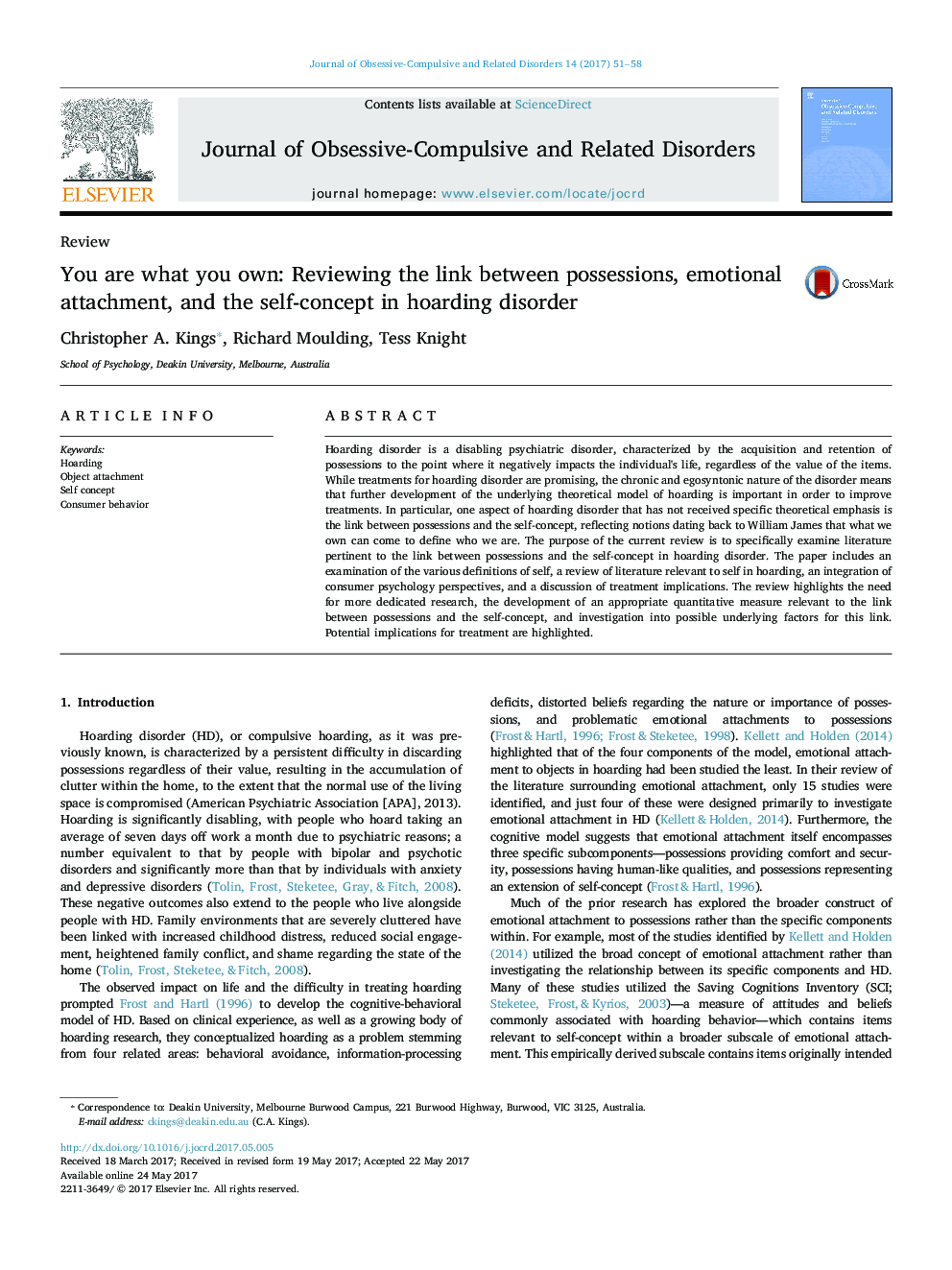| Article ID | Journal | Published Year | Pages | File Type |
|---|---|---|---|---|
| 5039326 | Journal of Obsessive-Compulsive and Related Disorders | 2017 | 8 Pages |
â¢More research is required to understand the meaning of the self-concept in hoarding.â¢Clear definitions of the term “self” are required in future research.â¢Self-related concepts may have relevance to treatment outcomes.â¢Consideration of hoarding antecedents' relationship with self-concept are needed.
Hoarding disorder is a disabling psychiatric disorder, characterized by the acquisition and retention of possessions to the point where it negatively impacts the individual's life, regardless of the value of the items. While treatments for hoarding disorder are promising, the chronic and egosyntonic nature of the disorder means that further development of the underlying theoretical model of hoarding is important in order to improve treatments. In particular, one aspect of hoarding disorder that has not received specific theoretical emphasis is the link between possessions and the self-concept, reflecting notions dating back to William James that what we own can come to define who we are. The purpose of the current review is to specifically examine literature pertinent to the link between possessions and the self-concept in hoarding disorder. The paper includes an examination of the various definitions of self, a review of literature relevant to self in hoarding, an integration of consumer psychology perspectives, and a discussion of treatment implications. The review highlights the need for more dedicated research, the development of an appropriate quantitative measure relevant to the link between possessions and the self-concept, and investigation into possible underlying factors for this link. Potential implications for treatment are highlighted.
